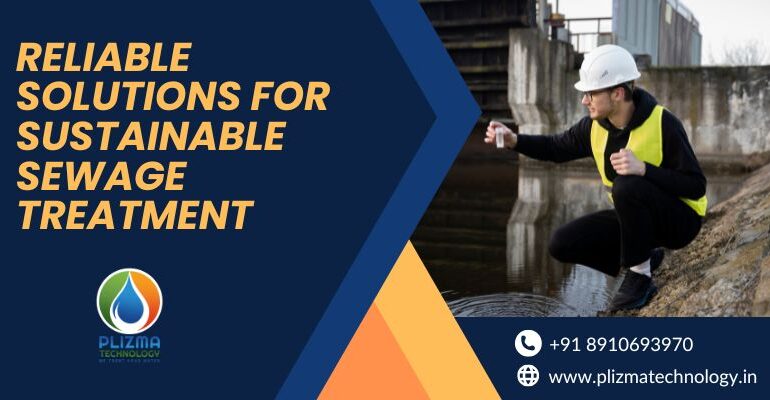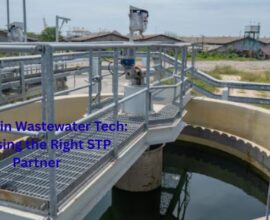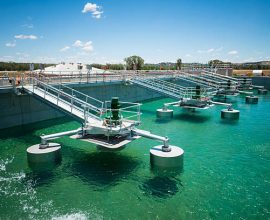Ever wondered how cities and industries manage the massive amount of wastewater generated every single day? The answer lies in the expertise of a sewage treatment plant supplier. These professionals design, install, and maintain systems that not only clean wastewater but also protect our environment from contamination.
Why Sewage Treatment Matters More Than Ever
With growing urbanization and industrialization, the amount of sewage produced daily is staggering. According to the Central Pollution Control Board (CPCB), India generates over 72,000 million liters of sewage per day — but only about 30% of it is treated properly (CPCB). This untreated wastewater often ends up polluting rivers, lakes, and groundwater, posing a serious threat to both human health and ecosystems.
A reliable sewage treatment plant provider plays a vital role in bridging this gap. By offering advanced and efficient treatment solutions, these providers help cities, housing societies, and industries meet environmental regulations while conserving valuable water resources.
How Sewage Treatment Plants Work
At its core, a sewage treatment plant (STP) uses a combination of physical, chemical, and biological processes to remove contaminants from wastewater. It transforms harmful sewage into water that can be safely discharged or reused for landscaping, construction, or industrial applications.
Key Stages of Sewage Treatment
- Primary Treatment: Removes solid waste and debris through sedimentation and screening.
- Secondary Treatment: Uses microorganisms to break down organic matter and biological contaminants.
- Tertiary Treatment: Involves advanced filtration, disinfection, or chemical treatment for water reuse or safe discharge.
Many modern STPs also include sludge management and odor control systems, making them efficient and environmentally friendly.
What Makes a Good Sewage Treatment Plant Provider?
Choosing the right provider can be the difference between a sustainable investment and a costly maintenance headache. A dependable provider focuses on quality, innovation, and compliance — ensuring that every project aligns with local environmental laws and long-term efficiency.
Qualities to Look For:
- Experience & Expertise: Years of practical experience in sewage treatment technology and system design.
- Customized Solutions: Ability to tailor systems for residential, commercial, and industrial applications.
- Eco-friendly Practices: Focus on recycling and water recovery methods to promote sustainability.
- After-Sales Support: Ongoing maintenance, inspection, and troubleshooting for long-term reliability.
Additionally, leading providers invest in research and development to incorporate smart technologies like automation, IoT-based monitoring, and energy-efficient aeration systems — reducing operational costs while improving performance.
Industries That Depend on Sewage Treatment Plants
From hotels and hospitals to manufacturing and real estate, almost every industry now recognizes the importance of an effective sewage treatment system. These plants help organizations stay compliant with environmental norms and avoid heavy fines for wastewater violations.
- Real estate projects and residential complexes
- Industrial manufacturing units
- Hospitality and healthcare facilities
- Educational institutions and government bodies
Each sector has unique wastewater challenges — and that’s where the expertise of a professional provider becomes invaluable.
Future of Sewage Treatment: Smart and Sustainable
The future of sewage treatment lies in smart automation and circular water reuse. With the advent of real-time monitoring and AI-driven control systems, treatment plants can now optimize operations, reduce energy consumption, and ensure consistent output quality.
Moreover, as climate change intensifies, the role of wastewater recycling in water conservation cannot be overstated. Forward-thinking providers are already implementing systems that transform waste into resources — from biogas generation to nutrient recovery.
FAQs
1. What is the main purpose of a sewage treatment plant?
The main goal is to remove contaminants from wastewater, making it safe for discharge or reuse, while protecting public health and the environment.
2. How long does a sewage treatment plant last?
With proper maintenance, a well-built plant can last 15–25 years or more, depending on the system type and operational quality.
3. Can treated sewage water be reused?
Yes, treated sewage water is often reused for irrigation, flushing, or industrial cooling, significantly reducing freshwater demand.
4. How do I choose the right sewage treatment plant provider?
Look for a provider with proven expertise, advanced technology, environmental certifications, and strong after-sales service.
Final Thoughts
Choosing the right sewage treatment plant provider isn’t just about meeting regulations — it’s about building a sustainable future. When businesses and communities invest in quality treatment systems, they invest in cleaner water, healthier ecosystems, and a greener tomorrow.




